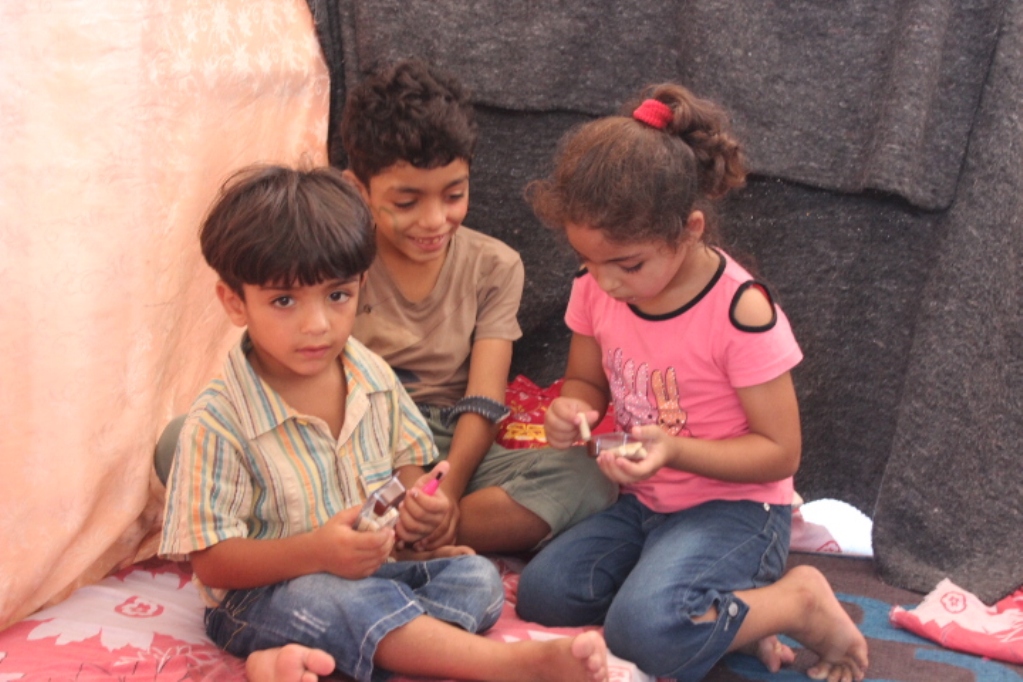
By : Raed Al Nims
I approached her with my camera. All I wanted was to take a picture of her. But she cried and ran away quickly, burying herself in her mother’s lap. She was terrified of my camera.RimasHillis (4) was displaced from her home in Al Shaja’iyeh and now lives with her family in Al Zaytoon School in Tal Al Hawa in Gaza City.
I turned to her father, Kan’anHillis (27), a bit puzzled by the child’s screams and tears. “Rimas has been like this ever since our home was bombed and we were besieged in Al Shaja’iyeh for nine full hours amidst gun shots and explosions. She is terrified of all strangers and jumps when she hears a car engine or a door slammed shut. She cries every night. She misses the doll she used to sleep with for comfort. She was very attached to that doll”, Kan’an said.
Kan’an, his wife and their four children lived in a small but cozy house filled with family memories. But now, the children’s clothes, toys and photos are all buried under the rubble of that home.
Khaza’ Hillis (8), the family’s eldest son, walked towards us. He was shaking an empty plastic bottle. I asked him how he felt about life in this school. I could hear the anger in his little voice: “This is a bad place. I want to go home to look for my bicycle, but my dad won’t let me. I am sure I will find it in front of the house, because that is where I left it before the bombing started and we had to run away”. His father smiled and patted Khaza’ on the shoulder, but that smile was filled with helplessness.
When I asked about their living conditions in this school-turned-shelter, Kan’an said: “When we arrived at the school, it was already bursting with displaced people. I used some of the covers that were given to us by well-doers to create an artificial wall between ourselves (18 adults and children) and other families. The situation here is tragic. Hundreds of people share a few toilets and bathrooms. There is nowhere for children to play, and no privacy whatsoever. My children have to sleep on the floor and we wait for a long time to use the bathrooms”, he added.
Nissan, the family’s six-year-old daughter, sat barefoot at a table, drawing. Her father called her and asked her what she longs for. She looked down at the floor, pushing a small stone with her foot: “I want my doll. I want to go back home”, she replied.
Organizations working in the Gaza Strip have reported that around 350 000 children need specialized psychosocial support. As part of PRCS’ efforts in this domain, the specialized Psychosocial Support Team, which comprises 150 trained specialists, started implementing activities in the field of Psychosocial First Aid as of the second week of the Israeli attack on the Gaza Strip. These activities target displaced families currently living in shelters, with a special focus on children. So far, the team has provided their support to around 25123 beneficiaries.
The PRCS' Psychosocial Support Team provides Psychological First Aid, deals with cases of stress and anxiety, links individuals to providers of psychological support services, diagnoses psychological disorders and refers patients to specialists when more specialized care is needed.
End.